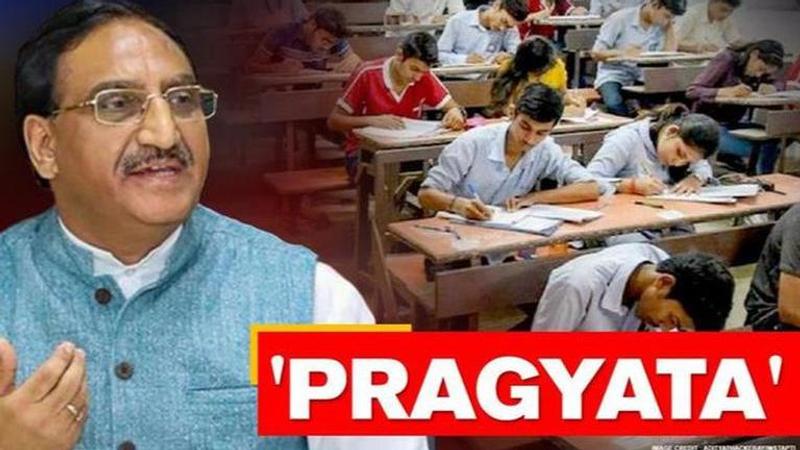Published 20:44 IST, July 14th 2020
HRD announces guidelines for online classes by schools, recommends cap on screen time
HRD Ministry issued guidelines for digital education as educational institutions across India take to online classes amid coronavirus pandemic

The Human Resource and Development Ministry on July 14 issued guidelines for digital education as educational institutions across India take to online classes amid coronavirus pandemic. The guidelines for digital education titled 'Pragyata' contain recommendations for teachers, students, and parents among other things. The guidelines suggested that on any given day interacting with parents of pre-primary students the screen-time should not be more than 30 minutes, while for students of classes 1-8 not more than two sessions of 30-45 minutes and for students of 9-12 not more than four sessions of 30-45 minutes.
Read: HRD Ministry Issues Guidelines To States, UTs Regarding Education Of Migrant Workers' Children
The guidelines further suggested teachers use instant messaging, chat groups, emails involving parents for sharing important information, resources and follow-up activities. The guidelines suggested teachers share e-content with students and parents and also guide them on how to use those content using available technology or gadgets at home. The guidelines recommended teachers share presentations that are easily readable, slides must follow certain rules like not more than 5 bullet points, maximize the use of infographics, graphs, charts, and asked them to avoid tables as much as possible.
Guidelines for parents
The guidelines asked parents to keep their children engaged in learning and at the same time to look after their emotional well-being as well as physical health. "Keeping in mind the detrimental effects of the internet and gadgets, judicious use of the internet may be monitored by the parents. Parents may interact with children on a regular basis to know their physical and mental well being. Watch out for signs of anxiety, depression /anger during digital learning," the guidelines said.
The guidelines also advised students to maintain proper posture while working with computers or viewing TV. The guidelines said learners must sit on the chair straight in an upright sitting posture, maintaining right angles at the ankles, knees, hips, and elbows. Students' heads must be forward-facing, and balanced. It further added that digital equipment needs to be placed at appropriate and convenient locations for easy access.
Updated 20:44 IST, July 14th 2020






